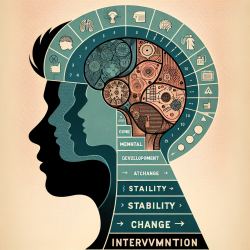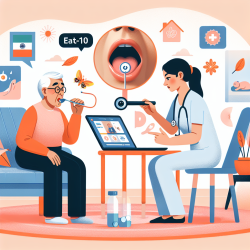The increasing diversity in patient populations necessitates that healthcare practitioners develop robust cultural competence skills. A recent study titled "That never would have occurred to me": a qualitative study of medical students' views of a cultural competence curriculum provides valuable insights into how cultural competence training can be improved to better prepare practitioners for real-world challenges. This blog post will explore key findings from this research and offer guidance on how practitioners can enhance their skills by implementing these insights.
The Importance of Cultural Competence
Cultural competence in healthcare involves understanding and respecting diverse cultural backgrounds to provide effective care. It is crucial for reducing health disparities and improving patient outcomes. However, the effectiveness of cultural competence curricula in medical education has been debated, with mixed evidence on its impact on learners' knowledge, attitudes, and skills.
Key Findings from the Study
Formal vs. Informal Curriculum
The study found that medical students valued informal learning experiences over formal curricula when it came to developing cultural competence. Informal learning through interactions with diverse peers and clinical experiences was seen as more impactful than lectures or standardized patient modules. Practitioners can take this insight to heart by seeking out diverse experiences and learning opportunities outside formal training settings.
Awareness vs. Intervention
The curriculum increased students' awareness of their biases but was less effective in teaching intervention skills. Practitioners should focus on developing practical skills to address biases in clinical settings. Engaging in role-playing exercises or workshops that simulate real-world scenarios can help bridge this gap.
The Search for Cultural Balance
Students expressed a desire for group-specific knowledge while also wanting to respect individual differences. Practitioners should strive for a balance between understanding cultural norms and treating each patient as an individual. This can be achieved by adopting a mindset of cultural humility, where practitioners approach each patient encounter with curiosity and openness.
Political Correctness Concerns
The study highlighted concerns about political correctness overshadowing genuine discussions about culture and bias. Practitioners should foster environments where open dialogue is encouraged, allowing for honest discussions about cultural challenges without fear of judgment.
Implementing Research Insights
- Diversify Learning: Engage in informal learning opportunities such as community events or cultural immersion programs to gain firsthand experience with different cultures.
- Practical Skill Development: Participate in workshops that focus on developing intervention skills to address biases effectively.
- Cultural Humility: Approach each patient interaction with an open mind, recognizing that each individual is unique despite cultural backgrounds.
- Create Open Dialogues: Encourage open discussions about cultural issues within your practice to promote understanding and respect.
Conclusion
The insights from the study underscore the need for a more integrated approach to cultural competence training that combines both formal education and informal experiences. By embracing these findings, practitioners can enhance their ability to provide culturally competent care that respects and understands the diverse backgrounds of their patients.










